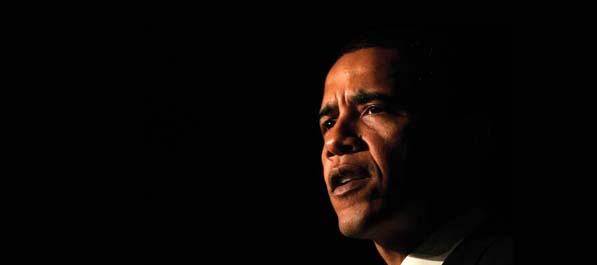Burma and Obama

Washington remains the Burmese people’s best hope for reliable support in their struggle for democracy
AS Barack Obama assumes the heavy duties of the US presidency, the oppressed Burmese people who have seen little political progress in their crisis-racked country are looking to him to see how his Burma policy differs from his predecessor’s.
Although thousands of miles separate Burma and the US, the Burmese people still look to Washington—rather than the capitals of China, India, Russia or any of the EU or
Asean member countries—to provide reliable political support for democratic change.
The question remains, however: will US policy toward Burma under Obama’s administration be low on megaphone diplomacy and heavy on demanding results? More importantly, how will the new administration’s policy differ from the Bush policies that won the appreciation of Burmese inside and outside the borders of Burma?
Obama is no stranger to the Burma issue. When detained democracy leader Aung San Suu Kyi celebrated her 63rd birthday last year, Obama—a senator at that time—said the occasion offered “an opportunity to remind the world community of the continuing tragedy in her country and the responsibility we have to press for change there.”
Fine words, but the truth is that Burma’s plight won’t figure among Obama’s top priorities. His attention will be mostly occupied by a worsening domestic economic crisis, while foreign policy concerns like Iraq, Afghanistan, Pakistan, North Korea, Darfur and Zimbabwe will undoubtedly push Burma onto the back burner.
Aung Din, director of the Washington-based US Campaign for Burma, said that although Obama would be “occupied with many pressing issues … we will continue to work with the Congress to remind him of the situation of the people of Burma.”
On the positive side, Aung Din noted: “We still enjoy strong bipartisan support in both the Senate and House. I believe the Congress will help us to put Burma on Obama’s foreign policy priority list sooner or later.”
It’s felt that the Obama team has inherited a lot from the Bush administration stand on Burma, and activists have reason to be hopeful that the Burma issue will attract serious attention.
Burma also commands continuing attention in the US press, and one influential newspaper, The Washington Post, carried several editorials on Burma after Obama won the race for the White House.
“Like South Africans, Burmese will remember who sided with her during their years of oppression and who sided with the oppressor,” the newspaper said. “And as the world watched and measured America’s shifting stance on apartheid, so it will measure the next administration’s commitment to democracy in Burma and beyond.”
In December, former Secretary of State Madeleine K Albright, chairwoman of the National Democratic Institute (NDI), presented the institute’s human rights awards to a staunch supporter of the Burma cause, Archbishop Desmond Tutu of South Africa, and to the Women’s League of Burma.
Albright visited Burma in 1995, when she was US ambassador to the UN and met Suu Kyi at the opposition leader’s home in Rangoon, a year after US congressman Bill Richardson had visited Suu Kyi.
Burmese activists recall that it was Bill Clinton who first imposed investment sanctions on the Burmese regime in 1997. He also presented a presidential award to Suu Kyi.
The Burmese have influential friends in the US Congress, and they won’t forget the engagement shown by Bush and first lady Laura Bush during their time in the White House.
Said Aung Din: “Even in the last days of his administration, President Bush and the first lady have put Burma in the international spotlight again and again and set up a precedent for the next administration. We owe them a lot.”
Although preoccupied by his “war on terror” and under heavy criticism at home and abroad for his foreign policies, particularly his invasion of Iraq, Bush nonetheless won the admiration of most Burmese for his firm stance on the repressive regime.
Bush has often been faulted for his tendency to see complex issues in black and white.
But while many condemn him for trying to impose his political perspective on Iraq, few can argue that in the case of Burma, he has taken a genuinely principled stand that is perfectly consistent with reality. Even some anti-Bush critics admitted, albeit uncomfortably, that Bush and his wife Laura were doing something good on Burma.
Bush had a meeting at the White House in 2005 with Shan human rights activist Charm Tong. Laura Bush frequently met Burmese activists in Washington and New York, talked passionately on the subject of Burma whenever she had a chance and strongly pushed the Burma agenda at the White House.
1 | 2 | 3 | 4 next page »
